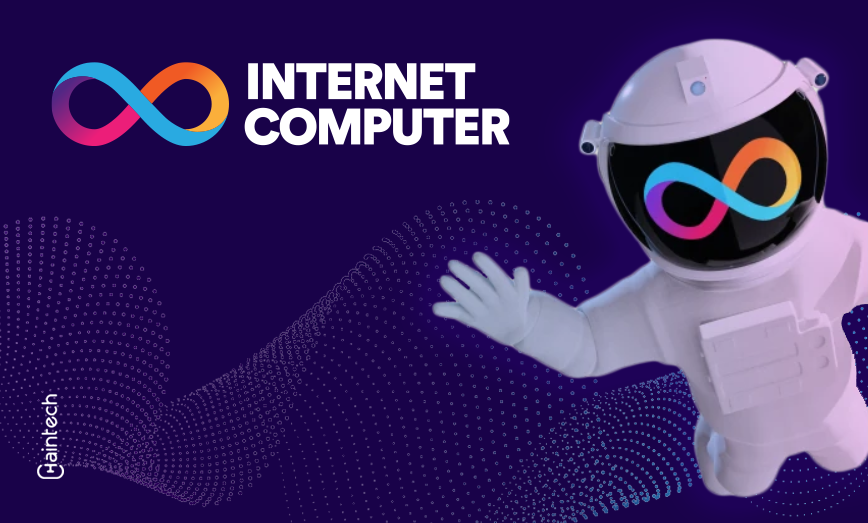Future Of Blockchain: 7 Predictions for the Next Decade

The outlook of blockchain technology has changed greatly since its inception. Other than cryptocurrency, studies reveal that blockchain could innovate entire industries. A critical question would arise: how will blockchain evolve in the future? A decade from now, we envision tremendous growth in the application of blockchain, and its adoption by different sectors will be necessary because of its ability to decentralize and secure data.
For more insight into the topic, continue scrolling down as we highlight the major expectations for the growth of blockchain during this period.
The future of blockchain: in the next 10 years
- In the 10 years ahead, as technology emerges, the use of blockchain will not be limited to cryptocurrency but will enable innovations in healthcare and real estate, amongst others.
- Scalability solutions such as Layer 2 and sharding would facilitate quicker transactions on blockchains, enhancing their effectiveness and increasing the transaction per-time volume.
- Blockchain technology will particularly benefit underserved populations across the world by enabling the delivery of services with quick speed, low cost and better quality.
What is blockchain, and how does it work?
A blockchain is a modern technology that allows for the storage of monetary information in a distributed manner across multiple computers. First, information can be stored in “blocks” and clustered into a chain. Moreover, its structure provides enhanced security, as each block is permanently fixed, making it extremely hard to tamper with. In addition, verifying a transaction does not require a specific person or entity to be responsible. Instead, the system relies on a decentralized network. Consequently, this setup reduces the risk of fraud. Furthermore, blockchain technology increases transparency. Ultimately, it offers a secure and efficient way to handle transactions across digital platforms. Instead, it uses multiple computers, or “nodes,” to ensure the data is accurate and safe. This system is what makes blockchain so reliable.
What is the significance of blockchain?
Blockchain is significant as it provides a trustworthy and decipherable method for data storage. It can be utilized for various functions apart from cryptocurrency. For instance, it is now being researched in the healthcare, real estate, and government sectors.
Now, let us discuss the seven futures of blockchain predictions.
Will blockchain transform industries?
It is going to change the ways of things in so many sectors apart from just finance. While we quite often hear stories about Bitcoin and other cryptocurrencies, blockchain can be advantageous to a number of spheres. In the 10 years to come, be on the lookout for sectors like these:
- Healthcare: Blockchain can securely store patient records. This will ensure data accuracy and privacy.
- Supply chain management: Blockchain enables companies to see their products at every stage of the distribution cycle, thereby minimizing the chances of fraud and improving transparency.
- Government: Blockchain can create more secure voting systems. This will help reduce fraud and make elections safer.
- Real estate: Blockchain could make buying and selling property easier. It can cut down on paperwork and increase transaction security.
- Education: Schools can use blockchain to store student records securely, ensuring that academic credentials are always accurate.
Each sector will see significant changes as blockchain becomes more widely used.
How will blockchain decentralization change?
Blockchain is built on decentralization, which means no single authority controls the system. Over the next decade, decentralization will evolve and expand into more areas.
| Year | Decentralization Trend | Expected Impact |
| 2025 | Decentralized finance (DeFi) will grow | More people will turn away from traditional banks |
| 2026 | Decentralized voting systems | Increased election security |
| 2027 | Decentralized healthcare systems | Safer patient data management |
| 2028 | Decentralized real estate transactions | Faster and more secure property transfers |
| 2029 | Decentralized supply chains | Better transparency and reduced fraud |
By the end of the decade, we expect that blockchain decentralization will be integrated into the majority of the existing businesses, making the systems more reliable and efficient.
In what ways do you think regulation will affect the future of blockchain?
Merriam-Webster defines government regulation as an authoritative direction. In blockchain’s case, indeed yes. Countries are trying to sort of a lost connection between how to regulate blockchain and at the same time inhibit its advance; this equilibrium will prove pivotal in the next few years. Here’s what we can expect:
- More government involvement: Governments will use blockchain for public services like voting and identity management.
- Clear rules for blockchain use: We’ll see clearer laws that define how blockchain can be used in different industries.
- International consensus: Nations will join efforts to come up with universal guidelines concerning the utilization of blockchain technology.
- More rigorous policies on cryptocurrency: Cryptocurrencies will have to have additional policies in place that are meant to curb illegal activities.
- Laws on consumer rights protection: Rules are expected to be provided by governments that will help people secure themselves against fraud in the blockchain market.
Blockchain regulation will help increase trust in the technology and ensure it is used responsibly.
What about privacy in a transparent blockchain world?
The edge of blockchain technology is its transparency, but its vulnerability is also one of the areas that have come under scrutiny. If each transaction is public, how then do one keep confidential information safe?
There is a positive outlook that blockchain can create transparency and anonymity. For instance;
- Encryption: Data can be encrypted so that only the right people can access it.
- Private blockchains are closed networks where only authorized users can view data.
- Anonymous transactions: Blockchain allows people to make anonymous transactions while maintaining data integrity.
- Selective disclosure: Users can control what information they share and with whom.
- Decentralized identity: models do not depend on other services for the management of identity.
When blockchain continues to evolve, it will gradually be able to offer more inventive ways to retain privacy without compromising openness.
Did you know?
According to statistics, at least 80% of American businesses are investigating the use of blockchain technologies in order to enhance their security and transparency.
Will blockchain be able to expand as a solution for various business problems?
Among the limitations of blockchain is scalability, which is a concern at this moment as it cannot support a large volume of transactions like current existing systems. But over the next 10 years, this will change. Several solutions are already being tested, including:
- Layer 2 Solutions: Л2 refers to the way the transactions take place outside the main chain, thus offloading the current chain.
- Sharding: The increase in transaction volume can also be achieved by dividing a blockchain into “shards,” or smaller fragments.
- Hybrid blockchains: The merger of public and private blockchains adapts to increasing demand.
- Blockchain Interoperability: Blockchains are able to work with each other and share information, thus enhancing productivity.
- New consensus mechanisms: The industry will go from slow, energy-burning, mining-proof systems to faster and more efficient alternatives.
In the near future, up to 2030, the number of transactions that can be performed by a blockchain will be incomparably higher, making it feasible for global business systems.
Will blockchain improve financial inclusion?
The new reality is that blockchain has a huge potential power to upgrade finance systems. The one most promising advantage comes with assisting people without having mainstream banking access. Here’s how blockchain will better serve in propelling financial inclusion:
- Low-cost financial services: transaction costs and fees have been minimized through blockchain, and this expansion can be accessible to a greater number of people.
- Mobile access: People in remote areas can access blockchain financial services through their phones.
- Digital identities: Blockchain helps create identifiers for people without having them dependent on physical third-party IDs.
- Microloans: Banks are not likely to give loans, but microloans can be done via blockchain; it’s cheaper and requires little information.
- Cross-border payments: Moving money across borders can be simply done; there is no need to send huge charges to make it because of Blockchain’s advancement.
In taking the secure, affordable approach to these financial services, blockchain will enable the global economy to involve many more participants.
In what way will future of blockchain technology interact or integrate with other types of technology?
Blockchain won’t exist on its own. It will be integrated with various other technologies to expand the possibilities further. Here’s how blockchain will work with other emerging tech:
- Artificial intelligence (AI): All data stored on the blockchain will be utilized by AI as an independent decision-making process.
- Internet of Things (IoT): With the use of blockchain technology, IoT devices will protect themselves from outside interference while maintaining the integrity of data.
- 5G: The speed of 5G will make blockchain even more efficient.
- Quantum computing: A need will arise for the incorporation of quantum-resistant algorithms within blockchain systems to counter the threat of quantum computers.
- Smart contracts: Even as it focuses on improvement, blockchain technology will guarantee that automated smart contracts remain efficient in speedy transaction execution.
Integration of these technologies will provide an impetus for further development in the blockchain industry.
Did you know?
Public and private transactions are both catered for in the blockchain, including providing businesses with the efficiency to seek privacy while still focusing on transparency.
There is great hope concerning the future of blockchain.
We will see the blockchain applied in manners that transcend human thought as it expands and evolves within the next decade. It will revolutionize the market, grow the dimensions of financial inclusion, and embed with other technologies. Progress will be made too as regulations are drawn by the governments and investments incorporate fresh ideas.
There is immense change for many with the technology of block chain, but the concern is how such technology will benefit businesses and organizations. For those ready to die for this technology, do reach out to us and know how to get started.
FAQs
1. What is blockchain?
Blockchain stands for digital’s distributed ledger, and it is a technology that allows information to keep information safe across computers in a network. It can’t be centralized, so it can’t be changed in an easy way.
2. How does blockchain work?
Blockchain works by storing data in blocks that are linked together. Once a block is added, it cannot be changed.
3. Can blockchain improve scalability?
New solutions like sharding and Layer 2 technologies will make blockchain more scalable.
4. How will blockchain help financial inclusion?
Blockchain will provide low-cost financial services to people in remote areas, helping them access banking and payment systems.
5. What industries will blockchain affect?
Blockchain will impact healthcare, supply chain management, government, real estate, and education.









